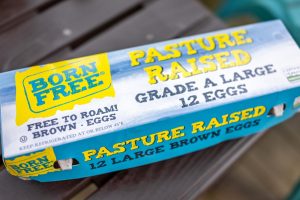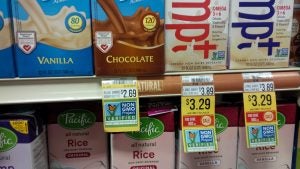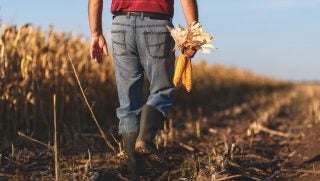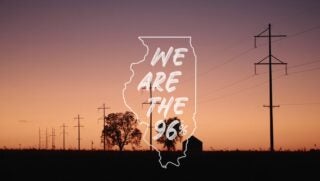Agriculture used to be a part of just about every American’s life. Citizens were responsible for providing at least part of their diet themselves, by growing fruits and vegetables or raising their own livestock. As we became more dependent on city life, some folks found their niche to be providing food for others. The industrial revolution and other societal advances have led to the overall growth of the average farm size and the reduction of farm owners.
Now-a-days, less than 2 percent of Americans are directly involved in the production of fruits, vegetables, or livestock, and the average American is more than three generations removed from the farm, according to the American Farm Bureau Federation. This means that a lot of people aren’t very aware of how products are grown, harvested, or processed before they make it to the grocery store shelves.
Unfortunately, another group of people have found their “niche” — preying on American’s lack of knowledge of agriculture industries, some online influencers promote a specific lifestyle, diet, or food label and bash agriculture in the process. These types of people take advantage of the rapid spread of information using social media sites, and earn money doing it. They know that many Americans will not have the knowledge to prove them wrong, and sadly many people will blindly follow them regardless of their qualifications.
Whether the influencer believes the information they are sharing or not, they know that these hot topics — such as organic, non-GMO, or gluten free — will gain them followers and earn them money.

Spreading misinformation about food is incredibly dangerous. Lies regarding animal welfare on farms, treatment of farm labor, or about how food is produced impacts not only how consumers purchase products but can even impact legislation, food prices, and nutrition in the U.S.
Many of the products these influencers promote are expensive, and potentially hard to come by. Convincing the public that they must, for example, buy 100 percent organic, gluten-free, dairy-free, or free-range products or they are bad parents, going to get cancer, or some other outlandish statement instills fear in consumers. Fear-mongering food is making it confusing for consumers, they aren’t sure what is true, what is healthy, or what is safe for them to consume anymore, all of this contributes to health hysteria.
Confusion regarding what people are “allowed” to eat according to what these influencers claim is not “toxic” or “unclean” not only can contribute to nutrition issues, but also financial issues. Products with niche food labels are more expensive. For example, gluten-free products are 240 percent more expensive than their gluten counterparts, yet their sales keep growing. The gluten-free market is expected to reach over $7.5 billion in sales by 2027, even though only 1 percent of the world have diagnosed Celiac disease (which is a legitimate immune reaction to eating gluten).
This trajectory is a direct result of fear-mongering food marketing, and it has thereby decreased the buying power of the American food dollar since they are purchasing more expensive products to replace their conventional choices. Although there is no scientific evidence to support a gluten-free lifestyle as “healthier” (in fact some research suggests it may hinder health), this hasn’t stopped millions of Americans from going gluten-free.

Gluten isn’t the only term Americans are avoiding when it comes to food. Things like antibiotics, hormones, preservatives, high fructose corn syrup, and others are being traded for organic, grain-free, all natural, and other more meaningless labels. Advancements in science, food production, and processing are the reasons we can enjoy such a diverse, full grocery store as Americans. It’s time that we, as a society, begin to thank the hardworking agriculturalists that continue to put food on our plates, regardless of what products we purchase.
The public should take a hard look at who they are following online and what kind of messages they are spreading. Does it seem sensationalized? Are they generally advertising or promoting a particular product? If so, then it’s time to hit that unfollow button and get the real truth on your food by those who know it best: farmers and ranchers.
Michelle Miller, the “Farm Babe,” is an internationally recognized keynote speaker, writer, and social media influencer and travels full time to advocate for agriculture. She comes from an Iowa-based row crop and livestock farming background and now resides on a timber farm in North Central Florida.



